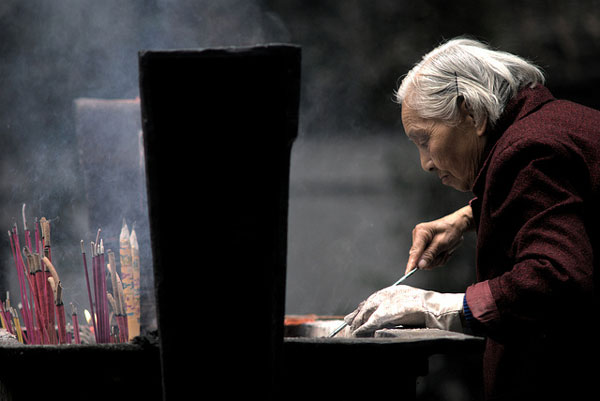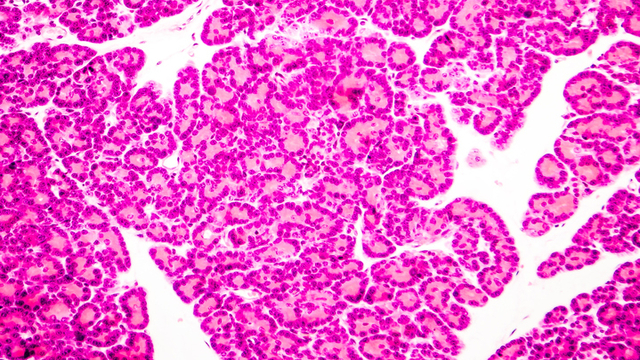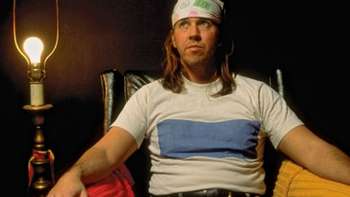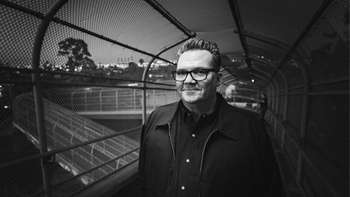With startling revelations our systems of authority are thought to be illegitimate, God dies, and the state cannot be justified. The burden of life is too great as our knowledge of suffering increases, to the point where our beliefs crumble and our gods buckle. Beings as a whole take precedent over Being. Democracy aims at the citizens’ first, rulers subject to them. Workers control means of production. How many different expressions of sublimated power can I come up with? I don’t know, but what is clear is there is a great skepticism in everyone who’s felt the strap, the wooden spoon, the sting of authority on our bottom. With particular irony we still feel guilty, and much of that guilt gains expression in our youth, in our art, and in our music—hardcore punk is no exception.
What a serious problem: our love-hate push-pull for authority. What’s miraculous is Title Fight, in so few words, both describe the psychic malaise infecting like the Black Death, and chant the mantra to preserve, if not actually heal, the wound in their song “Secret Society” from Floral Green. “Promises” unkept, “locked [doors]” and “lost [keys]” signify mental weakness (for what do doors, locks, and keys mean but mental doors, mental locks, and mental keys). This and “[lying] through [one’s] teeth,” “[losing] all of [one’s] self-respect,” and “[leaving one’s] friends behind” are blamed on the one inordinate unmovable motivator, the greatest of all punishers, the house fire eating up the air and pushing us to jump: “fate.” Their solution? “I’ll be you and you’ll be me: my secret society:” hardcore’s healing mantra, tucked away in spite of our “fate”—the most anti-life process.
The stage is set for the birth of Hardcore, the type of psychic depression inherited from a long struggle between truth and illusion.
But what does Title Fight mean here by fate? And why is it so flippantly undercut with an exhausted “guess”? Fate is a predetermined hammer bruising the pink flesh of the individual; it is the cliff at the end of a current that sweeps up our sorry body as driftwood, and throws it off the edge of a cause and effect that played out long ago. But is this fate eternal, is it an absolute? Or is it pliable, taking generations to bend the waves of influence, warp the space-time and affect gravity, change the trajectory. I don’t know, but the current is damn strong!

Title Fight (photo by Keegan McGuire)
Western civilization’s fate, (in which America is just one more iteration), plays out along the tracks set up its founding ideals. Small errors, and missed knowledge that lie at the beginnings of Socrates, Plato, and Aristotle, flower out into powerful structures like the Greek religions, or the second rate “state” and “government”—from which our businesses get valuable tips in tyranny. These platonic ideals were universalized, flipped, and injected into the masses, where it all drives present in the psyche, among which the darkest of needs to hate the powerful, purified, and usurped them into mediocrity and self-hatred. The most prominent mutiny is the Jewish subversion of Roman Catholicism, sharpened by Christianity, which effectively buried the Roman Empire. Moreover, inside Judaism and Christianity, one by one these Platonic-Socratic errors ate their way through, piece by piece, the health of human-being keeping it sick out of self-preservation. In a stunning defeat, after our spiritual father’s death, our skepticism of everything from the act of scientific theorizing to our faith in reality and consciousness is both questioned and kept at a distance, as if we couldn’t bear another death in the family. The subversion of authority happens on all human levels including the psychological, and familial levels. Now what do I mean by saying our fate is anti-life? From the beginning of western values comes the value of truth over the value of art. To value art is to love the lie, to enjoy the illusion, to believe not in reality, but imaginary potential: it’s not self-preservation, no—it is self-enhancing in the firmest “yes” imaginable. So ultimately the death of god means the death of truth, and the psychic scar is mistrust of authority.
To ask you to believe in the utility of untruth over truth might sound too bold for such pampered ears. Counter-intuitively, I propose, what we call truth is reality filtered through the body, the external senses, the internal senses, and the psyche (including unconscious both personal and collective)—only then is it experienced with a time lag, depending on which sense we isolate. The accumulated effect would be a sense-chaos. As a result, with any one experience our brains actually fill in an incredible amount of information before that information completely absorbs, for functional sake. To boot, once our brain assimilates and orders the information, it forgets the most constant, and unimportant stuff (a process called neural adaptation). So any given experience is both constricted to the “stuff” present, and interpreted by the mind in a great indifference to truth, filtered through our conscious and unconscious value systems. What appears as true, what is most stable, is actually just correct according to our values, cemented in our biology (more specifically in the phenomenology of our psyche) and at that the hardest to actually intuit, namely that stability is preferable to instability. Of course a real reality likely is behind our creation of our reality, but it lies locked behind the mysteries of the psyche, and we’re hardly close to cracking that code. (Taoism intuits this ultimate reality as the balance of chaos and order.) Therefore the body seems incapable of digesting any given situation in its entire truth; even the authority of the body is undercut. (This forgetting appears practical in the face of complexity: for ‘the world is complicated and ever changing’ is a gross understatement.)

An old lady keeps the incense keeper bowl clean and tidy in front of a shrine at the Qingyang Taoist Temple in Chengdu. Photo by Péter Molnár.
The dawn of truth’s falseness need not be a metaphysical thought exercise, a 2000 yearlong religious fever, or philosophical musing. We experience such a psychic blow as a newly conscious child. Our parent’s authority is immediately undercut once we learn their human flaws. According to Swiss psychologist Carl Jung, we inherit a “parental imago”[1] or “syzygy”[2] from the great pool of shared images floating in the human brain collectively—a kind of dual image maps over our two parents “in the initial stages between the first and fourth year, when consciousness does not show any real continuity and is characterized by a kind of island-like discontinuity.” This state is a kind of “somnambulistic dream, or twilight state,”[3] penetrated with “fantasy-images [that] outweigh the influence of sensory stimuli.”[4] The images then “mold […] into conformity,”[5] causing an extreme tension between biological reality and psychic reality when the child develops an ego-consciousness:[6] something inside that wills, feels, perceives in self-consciousness.
Moreover this syzygy, (an example of an archetype) projects itself onto the mother, “because the child lives at first in complete participation with her, in a state of unconscious identity.”[7] Once the child’s ego differentiates this image from the mother, “[a]ll the fabulous and mysterious qualities…are transferred to the person closest to her,”[8] most likely the grandmother, or “Great Mother.” This degree of separation changes the character of the image, further deifying it, assuming “mythological features”[9] of wisdom and a witch. Essentially the practice of naming a child’s godparents aims to supplant and control the newly deified imagoes. Once, twice, then thrice removed by the child’s preference for a developing consciousness, the image is “elevated to a higher rank,” that of goddess, and later God. Throughout antiquity the syzygy’s moral “opposites often remain united in the same figure.”[10] In some cultures the two aspects split and birth a benevolent goddess and malevolent goddess. Emerging from Western antiquity was the “paradoxical behavior and moral ambivalence” of the gods, that “scandalized people” leading to the devaluing of Olympic gods, weakening them to the value-inversion, and birth of the monotheistic god concept, or the Jewish “Yahweh.” Further scandals led to the “Christian reformation of […] the morally ambiguous Yahweh,” turning him into an “exclusively good God, while everything evil was united in the devil.”[11] What Jung calls our “feeling-values” caused Western peoples to affirm the love-of-god and deny the devil thereby transferring evil into the heart of humanity. This move forced the prophet Jesus to take on such a horrific crucifixion for the sake of an ever-perfect ideal.
Furthermore he says “the Yahwistic conception of God went through a series of rebirths in Protestantism,”[12] whereby Yahweh’s undivided ambivalent aspect was splintered further, the proof of worship was by faith alone (Sole Fide) and Catholic “works” (a physical deed done in the name of God) was abolished. Effectively, this paved the way for the modern Christian who wears faith like a scarf, and one by one we have peeled the Christian symbols off us like articles of clothing, exposing us to a psychic world no doubt deepened by morality, and soothed by religions healing aspect.
Jung continues: “The iconoclasm of the [Protestant] Reformation…quite literally made a breach in the protective wall of sacred images, and since then one image after another has crumbled away. They became dubious, for they conflicted with awakening reason.”[13] This reason, which too often is nothing but a dishonest mans accumulated “prejudices and myopic views,” robbed our mental fortress of its “bastions and casements, a house whose walls have been plucked away, exposed to all the winds of the world to all dangers.”[14]
![]()
Seven Works of Mercy, Master of Alkmaar 1504 (photo by Jim Forest)
So we have inherited this poverty. If faith in parents fails (which it must) then it transfers unto God, whose harsh hand holds us down indifferently in the workings of chance. As a great gasp of hopeful air, reformation after reformation shoved all negative aspects into the suffering of Jesus, chaining our debt to his love, and deepening our inadequacy in its presence. No longer are we disappointed at our flawed parents, but we are crushed by the weight of our ideal, and our inability to measure up to it. What a lamentable sickening!
In addition to the deepening of love, and our increasing sickness, our once fearful attitude toward God slipped away, absorbing in our hatred of life. In fact, Friedrich Nietzsche’s Beyond Good and Evil and On The Genealogy of Morals, attempt to describe the Judeo-Christian morality as the weak’s deep resentment for the healthy, by pointing to the former’s death. The polarizing existence of health and sickness necessarily results in inequality: the healthy get healthier, and the sick get sicker; the rich get richer, the poor get poorer. As a result, aristocrats inevitably form, enslave the weak, and separate them in quarantine. The god-concepts we call myths were born from ancestral victories, fought cruelly between tribes grown separate from each other, and yielded two kinds of basic classes: nobility and slavery. The initial concept of guilt arose as a commandment to continue the improvement of society, while honoring the barbaric strength of the ancestors: thus the birth of good (strong) and bad (weak) defined by the strong. Eventually a priestly class cleverly reversed the concepts of noble-good to mean evil (or eternally bad), and labeled their good as the polar opposite (or eternally good). From the point of view of the nobility the slave-evil didn’t exist just as the slave-good didn’t exist. What was good was their good health, and all attributes that contributed to its increasing energy.
This kind of noble naiveté in the face of a personal long war, a poisonous long focus on enemies, of malice spiritualized, coupled with Jung’s observed softening of the scandalous gods, led to the greatest of moral reversals that we triumph in all Abrahamic religions, beginning with Judaism.[15] The priestly shepherd, sickest of the sick, used his philosophy to keep the herd barely alive, slowly inverting their good conscience to bad conscience, allowing them to waste away in guilt, if only to spur a great motivation to life, barely perceptible, yet unable to gain strength and become noble. He, the Jewish priest, in brilliant smartness convinced the healthy they were sick, and like crabs in a bucket, pulled the strong down—for that which they truly hate is what they know they aren’t: healthy. In a great, extended olive branch Nietzsche diagnoses the fatal flaw of western civilization as a misvaluation of truth, a missed opportunity to question that concept from the beginning, a noble slip up by the prolific genius Plato. As a result, Platonic thought was left to telephone through the common crowd in all their mediocrity, misinterpretation after misinterpretation, bastardization after bastardization continued this “error:” the goal that humankind must preserve, survive, and persist, rather than improve, evolve, and thrive. The weak and sick took to this rhetoric like a drowning man grasps a life jacket in a stormy sea.
 Nietzsche (right) says, “This is how Christianity as dogma perished, by its own morality.”[16] And of course what species better to be sick than the most foolish, most bumbling fool who stumbled unknowingly into his own divinity. It’s a miracle we don’t rip each other to shreds in feverish rage at the grocery store.
Nietzsche (right) says, “This is how Christianity as dogma perished, by its own morality.”[16] And of course what species better to be sick than the most foolish, most bumbling fool who stumbled unknowingly into his own divinity. It’s a miracle we don’t rip each other to shreds in feverish rage at the grocery store.
The important point is in each degree of separation our syzygy gets elevated higher, each generation further our ancestors get from us and the stronger we are, the more we fear their sacrifices, the more we honor them as gods. Conversely in western civilization the great reversal of morals shot our demands to honor and love our god far beyond human capacities. This blended mixture of love, fear, and lust for truth consumed itself, and the priest was the only thing keeping us in a state of life-preserving vegetation.
The percolating lust for truth is the fundamental motivator behind all mysticism, philosophy, and science. Every modern scientific achievement reveals a new mystical principle: the discovery of the Higgs boson, further confirming the Higgs field that gives particles their mass, begs more mystical questions, and deterministic fears about knowing god. Rather than showing the fundamental realities of the universe, I view this new mysticism as proof that science, and philosophy share the same bed with western religion and mysticism.
To take a step back, (and to admittedly simplify), philosophy proved itself as both a loyal, and unruly servant. One of its primary drives was to separate from its theistic roots, (superficially achieved by Kant’s Categorical Imperative). Alongside Kant, it needed to justify and build further causeways for dangerously intelligent minds to protect themselves against a chaotic reality. All too often a philosopher’s personal insufficiencies taint their work, and as a corrective measure, phenomenology seeks to open their minds to all possible phenomena as pliable evidence, a most cumbersome attempt at objectivity. What’s more, much like philosophies rebellion from religion, and scientific phenomenology’s skepticism of philosophy, post-modern deconstructive theory seeks rebellion from science, often in the most resentfully radical ways, disguised as philology and rhetoric!
Christianity’s inability to contend with suffering through sacrifice inspired the scientific mind in its search for another truth. In turn this “enlightened human” mastered its environment, resulting in the greater faith in consciousness. Paradoxically we shoved the spiritual man, the one that loves the lie, under the rug and by using our consciousness discovered the error: the rot in the wood, the worm in the apple.
Much like our parental epiphany mentioned earlier, our adolescent skepticism of science, and philosophy is far from unfounded. I turn to Carl Jung again to express his doubts about the reigning ego-supremacy:
Our intellect has achieved the most tremendous things, but in the meantime our spiritual dwelling has fallen into disrepair. We are absolutely convinced that even with the aid of the latest and largest reflecting telescope, now being built in America, men will discover behind the farthest nebulae no fiery empyrean…[17]

Carl Jung
Conveniently we view ourselves as masters and gods ourselves, until the terror of our own inadequacy gives rise to primitive panic, and “instead of being believed in, the anxiously guarded supremacy of consciousness…is questioned in the most dangerous way.”[18] From the sole perspective of consciousness, reality needs interpretation because we don’t understand it. According to Jung, “It is only the things we don’t understand that have any meaning.”[19] But there are ways of experiencing that bypass consciousness, namely art and music, where we “feel” rather than “know” meaning. Jung goes on:
Despite the materialistic tendency to understand the psyche as a mere reflection or imprint of physical and chemical processes, there is not a single proof of this hypothesis. Quite the contrary, innumerable facts prove that the psyche translates physical processes into sequences of images which have hardly any recognizable connection with the objective process.[20]
In terms of science’s relationship to philosophy, any type of morality derived from science often tries to get the upper hand and usurp the throne. In fact, science as such never decides what is…and that it is.[21] It “already presupposes a more or less explicitly drawn essential delimitation of appearances that constitute its realm of objects.”[22] In other words, scientists cannot create themselves.
The sickness runs deep and links to our conceptions of truth, and it’s supreme value. I might be accused of conflating these human developments with the life and death of the body—in other words, I rhetorically simplify and personify human qualities in areas it does not belong. But basic personalities appear in mob mentality, herd instinct, group emotions, like mass movements of jealousy, cruelty, fear, and primitive emotion—the feelings shared by all in their stupid glory. I do not believe the refined emotions take form in the masses, partly due to their rarity among the individual, and partly due to the inordinate amount of barbarity necessary for something like nobility to arise—rare humans possess noble qualities. But if I may continue with the body metaphor for human civilization, clearly all its developments come from the great order among the lower “cells” (a simple pancreatic cell) the higher “cells” (neurons) to have the freedom to grow and make new connections. Without the complete compliance of the pancreatic cell, the neuron has no function in its spirituality. I’ll take the metaphor further: ideas have their life and death too. The primary stage of development for Western civilization is that of the adolescent, “later on, tortured by sheer disappointments, the young soul finally turns suspiciously on itself, still hot and wild even in its suspicion and pangs of conscience how furious it makes itself now, how impatiently it tears itself apart, how it avenges itself for its long self-blinding, as if it had been a voluntary blindness!”[23]
Everything I’ve said so far can be converted to states, governments, and our bosses. It’s only the further reverberations of our loss of faith, the natural process of wakefulness from the fantastic illusion of our ideals.

A pancreatic cell (image via The Scientist)
Even within the body small deaths come and go, but the body continues on its long war. We are on the cusp of a great realization, one that intuits its laws with balance, and anticipates its failures before they happen: a true wisdom, a further separation from our syzygy, a deepening of consciousness by rescuing ourselves in our unconsciousness. But before that certain things need to die, we need some Tylenol to combat the fever, maybe a mantra to suppress the questioning instinct, the factor that polishes our symbols smooth, “so that what remains is only banal superficiality and meaningless paradox.”[24]
The stage is set for the birth of Hardcore, the type of psychic depression inherited from a long struggle between truth and illusion. The eventual victory of truth and it’s terrible reign, created a necessary splintering of iconoclastic sup-groups that house the disaffected, the bitter, the hopefully hopeless. For within Hardcore, the youthful belt of the Blues, all music since has been an expression of pain that is too much to bear. What makes hardcore special is its emphasis on strength, on bravado and individuality (possibly due to a particular blend of American optimism and slave morality.) The genre has kept the search for truth, the priestly class, the master-slave dynamic, the resentment, the jealousy—in short all the baggage that came before it.
What is the hardcore show but a church where the sick make the sick feel healthy? A place to showcase the weaknesses inherited from our fathers. But the standard remains: health is power, power is good. Of course there are innumerable threats to this standard of health, infiltrating in the guises of Feminisms, Marxisms using compassion, and left-wing politics as catchwords and beacons for the damaged—systems run by all who would wish to make sickness the standard of health. But when the vocalist invites a young boy from the crowd on stage, and gives him the microphone for his 15 seconds of fame, they exchange roles. The boy turns around to crowd of sweaty pilgrims, and screams “I’ll be you, and you’ll be me!” twice into his sweaty palms. He chants away all his anxieties and fears, if only for 15 seconds of bliss. And we all scream back “my secret society!”
Footnotes
[1] Archetypes of The Collective Unconscious—C. G. Jung pg. 66
[2] A term Jung uses to describe a unity of opposites, as in opposite sexes.
[3] Archetypes of The Collective Unconscious—C. G. Jung pg. 66
[4] Ibid
[5] Ibid
[6] Archetypes of The Collective Unconscious—C. G. Jung pg. 63
[7] Archetypes of The Collective Unconscious—C. G. Jung pg. 102
[8] Ibid
[9] Ibid
[10] Archetypes of The Collective Unconscious—C. G. Jung pg. 103
[11] Ibid
[12] Archetypes of The Collective Unconscious—C. G. Jung pg. 11
[13] Archetypes of The Collective Unconscious—C. G. Jung pg. 12
[14] Archetypes of The Collective Unconscious—C. G. Jung pg. 13
[15] Beyond Good and Evil—Friederich Nietzsche sec. 219 pg. 122
[16] On the Genealogy of Morals: Third Treatise—Friederich Nietzsche sec. 27 pg. 347-348
[17] Archetypes of The Collective Unconscious—C. G. Jung pg. 16
[18] Archetypes of The Collective Unconscious—C. G. Jung pg. 23
[19] Archetypes of The Collective Unconscious—C. G. Jung pg. 31
[20] Archetypes of The Collective Unconscious—C. G. Jung pg. 57
[21] Nietzsche Vol 3: Will To Power—Martin Heidegger pg. 41-42
[22] Ibid
[23] Beyond Good and Evil—Friederich Nietzsche sec. 31 pg. 34-35
[24] Archetypes of The Collective Unconscious—C. G. Jung pg. 8[/quote]




